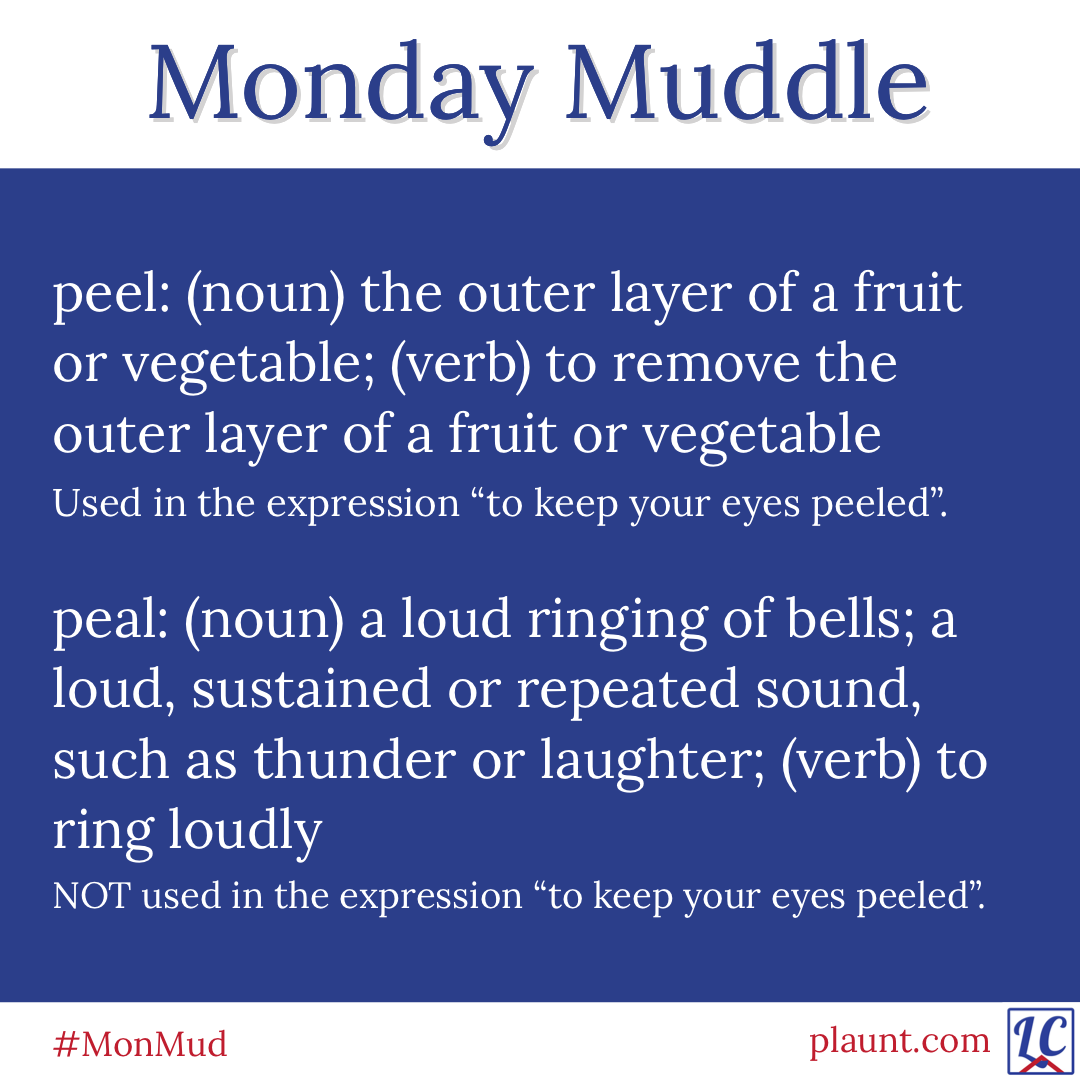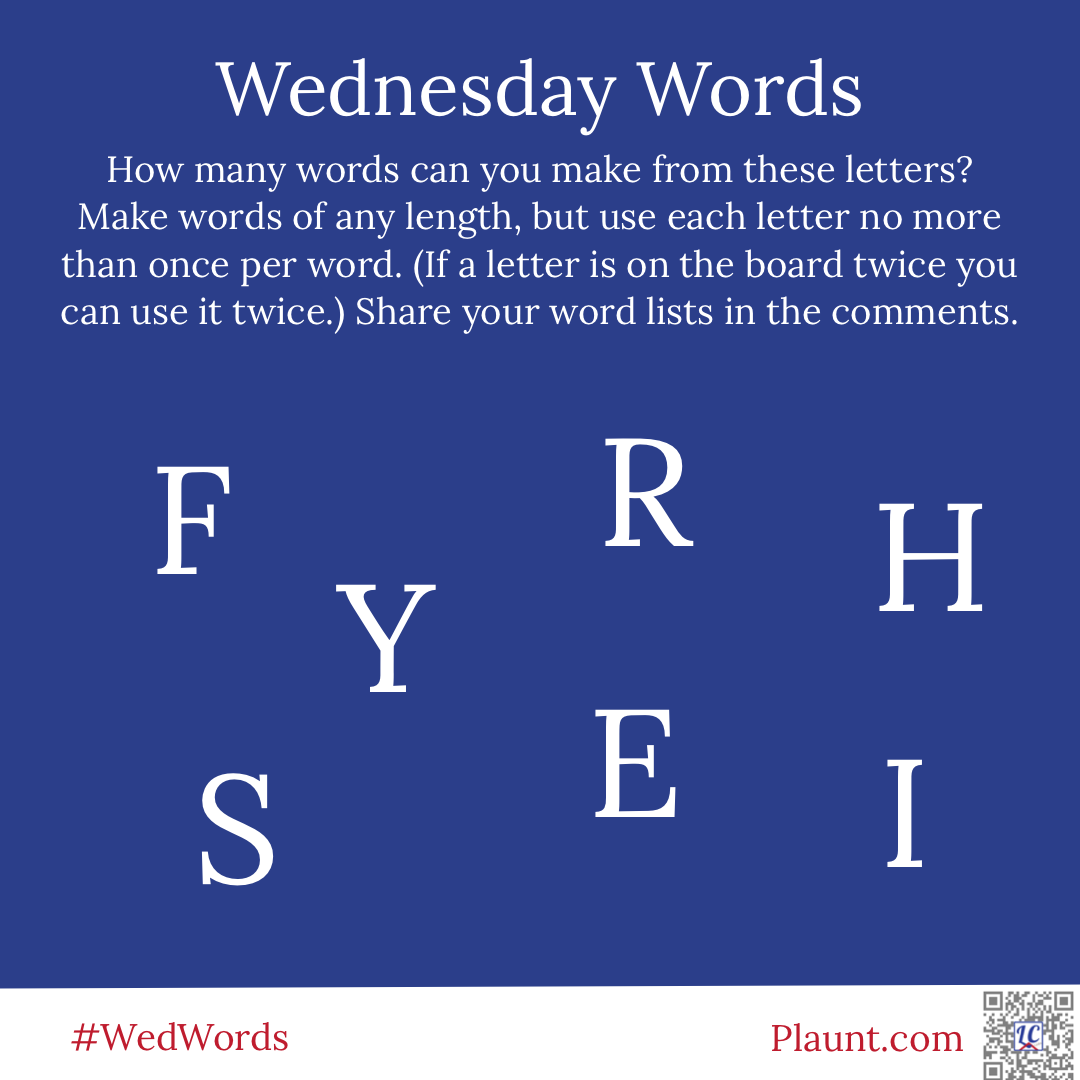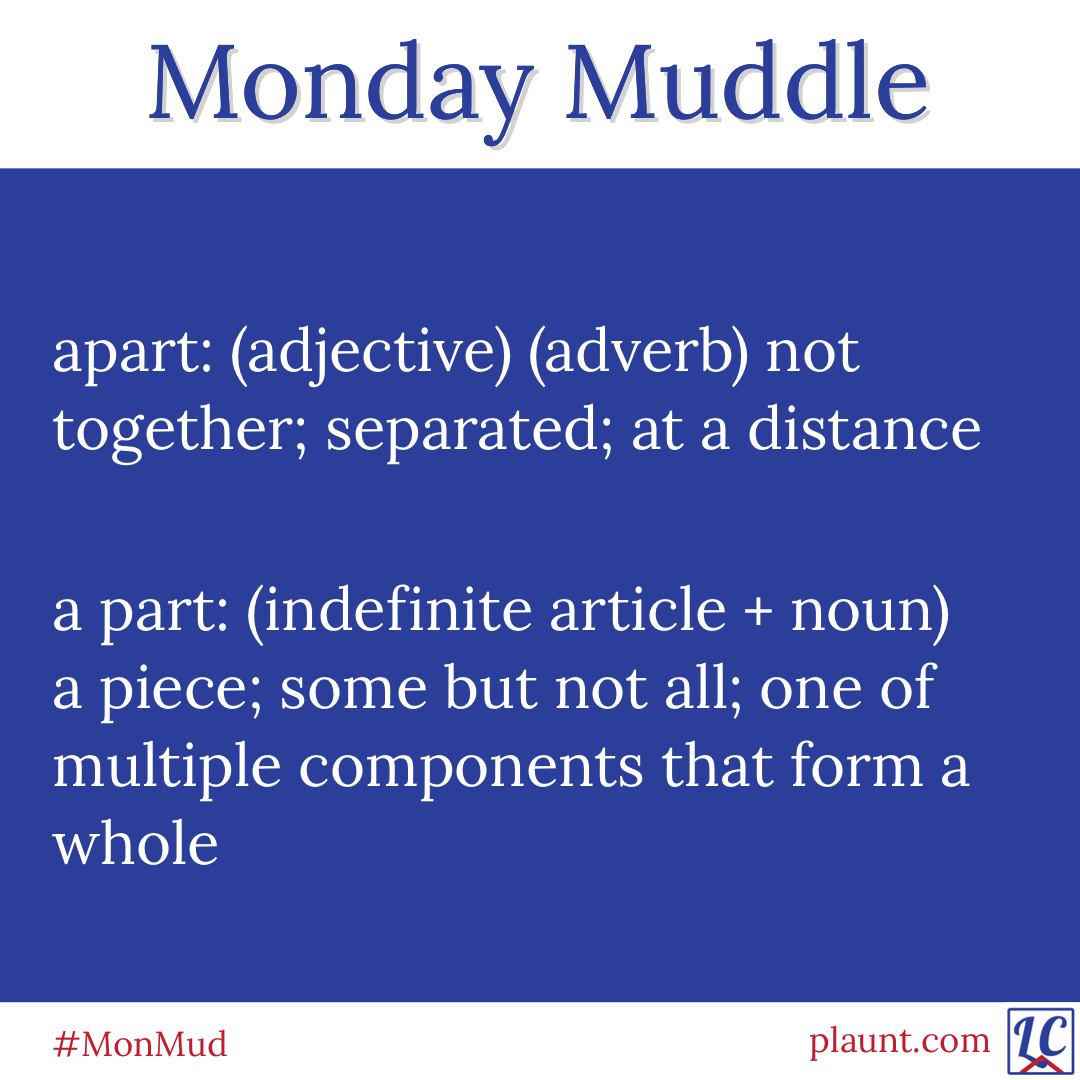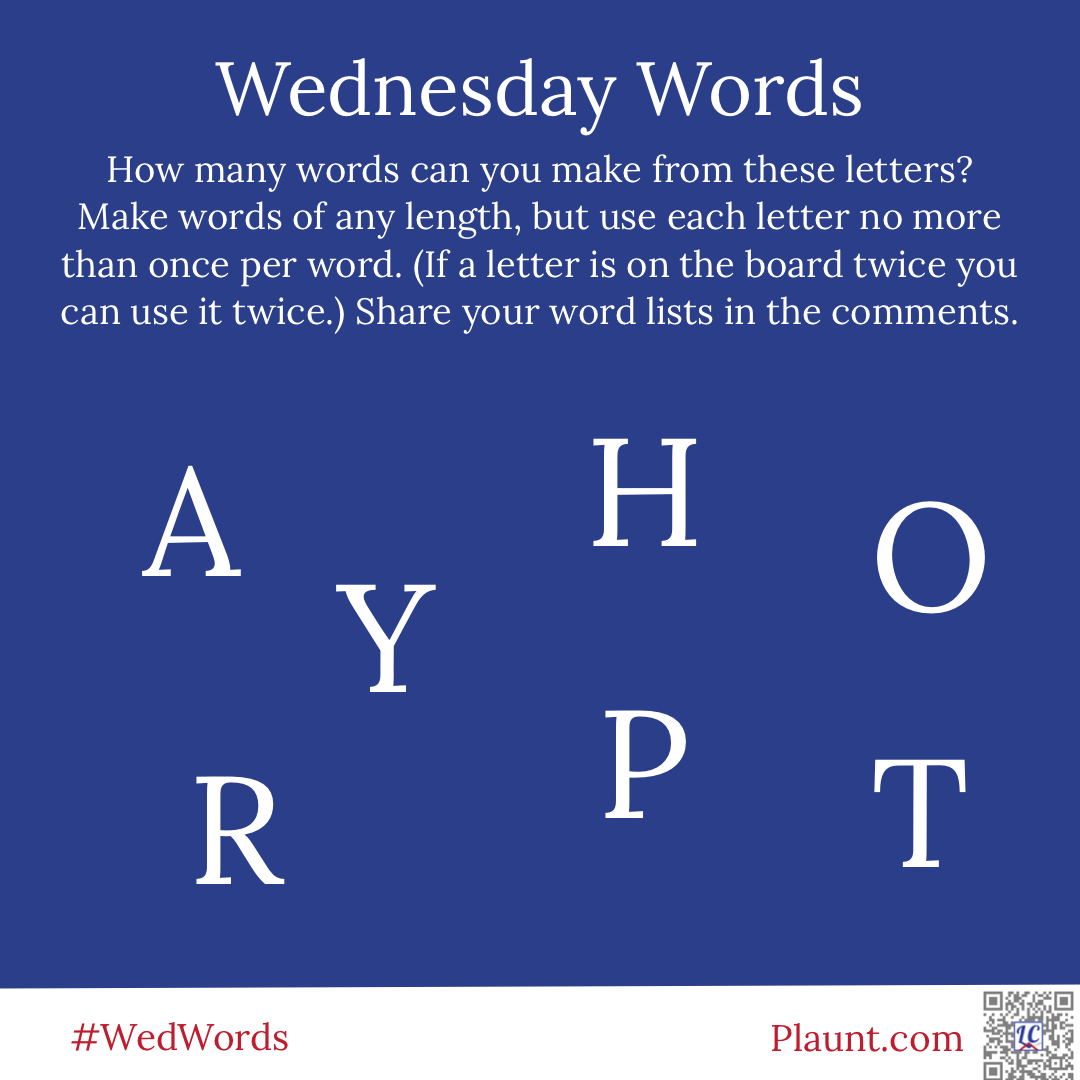
Monday Muddle: peel, peal


For a weekly dose of language-based humour, visit my Facebook page at https://facebook.com/lcplauntMEd

How many words can you make from these letters? Make words of any length, but use each letter no more than once per word. (If a letter is on the board twice you can use it twice.) Share your word lists in the comments.

Write a story with only two sentences. Use the photo for inspiration if you wish.
Photo by Holly Bartley on Unsplash.


These terms are basically opposites of each other. One means not together; the other indicates that it goes together with at least one additional part. If you are including either term in love notes to your sweetheart, you are going to want to get it right.
Memory Tip: The term without a space–where the letters are all together–is the one that means not together.
For a weekly dose of language-based humour, visit my Facebook page at https://facebook.com/lcplauntMEd

How many words can you make from these letters? Make words of any length, but use each letter no more than once per word. (If a letter is on the board twice you can use it twice.) Share your word lists in the comments.

Write a story with only two sentences. Use the photo for inspiration if you wish.
Photo by Robert Lukeman on Unsplash.
